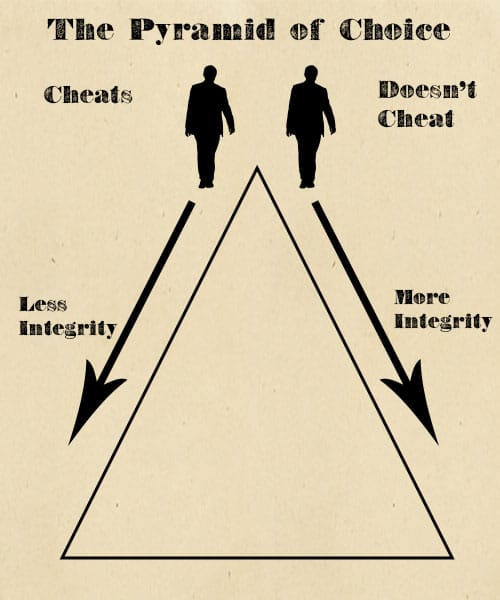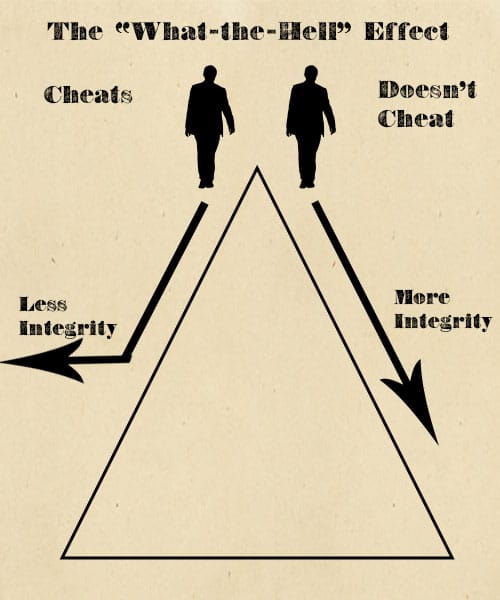One thing from last night that stayed with me was that people don't pick what addiction they have, the addiction picks the person. Addictions stem from needs. And the type of person that gets sucked into sexual addiction is one who deeply needs intimacy. In the workshop, intimacy was defined with other words: vulnerable, interpersonal, attachment, familiar, respectful, righteous, trusting, transparent, interaction.
I looked back on my life and realized I haven't had a truly intimate relationship ever. Don't get me wrong, I had tons of friends, but my relationship with them always went to a certain point and no further. I never really confided in my friends. I always acted as if everything was fine. Even with my wife, dating, engagement, and into marriage, I have stunk at being vulnerable, interpersonal, attached, familiar, respectful, righteous, trusting, transparent, and interactive. Turns out I'm really terrible at intimacy.
I also remembered that I wasn't able to really make any progress with my addiction years ago until I opened up to people - my parents, friends, group members, other family members. It was then that I felt closer to them, accepted by them, and in turn some of them opened up to me and it felt great. Unfortunately that was just the beginning, and I'm still the same man in many ways.
Temptations have been esp difficult recently, I think because I am lacking in good relationships. Things with the wife and I have been really hard the last few months. My good friends and I moved on with the new school year and I don't see them. My 12-step group recently split and I don't talk to people very much there anymore. I think this is why it's been so hard.
So anyway, one thing that I want to focus on is developing intimate relationships with those around me - first and foremost my wife. I will try to feel vulnerable, transparent, interpersonal, etc with her as she would like me to.
Here are some things I've done, and maybe some things I plan to do.
One problem that I have to fix is that I shut down when my wife needs me most. Often, when she opens up and leans on me and needs me, I shut down because it's usually because of things I have done and instead of being supportive and reassuring I feel terrible and that's the end of it. Yesterday we had one of those moments and instead of sinking into my despair I tried very hard to instead think of her and how I could help her. I still didn't say anything great or impressive like the scripted shows we watch, but I said something. And that's improvement.
Also, one thing that my wife has wanted for over a decade is her own cat. She told me this when before we got married, and I knew it would be a reality eventually - but I hadn't really decided it would be. When we'd talk about it I'd always shove it into the future and come up with excuses. The idea is really scary to me - I've never had an indoor pet. I hate fur. I hate the smell. It's more money. And there are other issues at hand. BUT it is something incredibly important to my wife, and it was time for me to take a risk and make a sacrifice for her - so we're going to be proud owners of a new feline pretty soon. And I will do everything I can to love that stupid cat. :)
Another thing I did this morning was I was feeling scared about a situation that occurred with my schooling and as usual put up a barrier the day before and acted like it wasn't worrying me at all and that it would be just fine and that I was fine. This morning I was still feeling scared, and instead of burying those feelings I decided to tell my wife that I felt scared about it even though I was pretty sure everything would be fine.
These are little things... but important things. I know I will have a slow learning curve, sometimes I won't do as well as others. I've NEVER been good at this. I almost feel like I'm learning a completely new skill, which is weird because I feel like these things should just come natural. But it hasn't. I love my wife very much and want nothing more than to be close to her and happy with her, problem is I have been so inconsistent with that for one reason or another (pride, fear, etc) which has caused us great grief. This is what needs to happen now, and I need to include God in the process, because I think I've distanced Him over the last year as I've gotten more frustrated and depressed about my issues. So here we go...



